The Act of Writing: A Semantic Exploration
As a writer myself, much of this article will be largely based on experience in the exploration of the advantages of writing versus speaking. Both writing and speaking can lead us in directions previously un-thought of; simply through the action of doing, and each has its strengths and weaknesses. In this article I am going to present the advantages that writing has over speaking – that writing is oftentimes even more concretely convalescing, more self-illuminating, than speaking with another person (although that interaction does have its benefits, which will be touched upon later). To arrive at the beginning of this argument we will first touch upon the differences between spoken language and written language, which will ultimately evolve into the thesis of this article (I am being deliberately self-conscious when speaking of the thesis before it is actually written – think “a film about filmmaking”). Aaaand here is the thesis now that we have mentioned it:
Through the act of writing we come to understand our internal psychologies more intimately than through any other form of semantic exploration.
Again, the label of “semantic exploration” is deliberate; this is an article that will focus primarily upon writing with regards to internal psychology.
Langue verses Parole – writing versus speaking
Now, for the clarification of the differences between “written language” and “spoken language”. French theorist Ferdinand de Saussure labeled the two as “langue” – the written manifestation language – and “parole” – the spoken manifestation of language (Saussure). Delving further and bringing in two more words, which shall prove more significant soon, these may also be associated with the concepts of “synchronic time” and “diachronic time”.
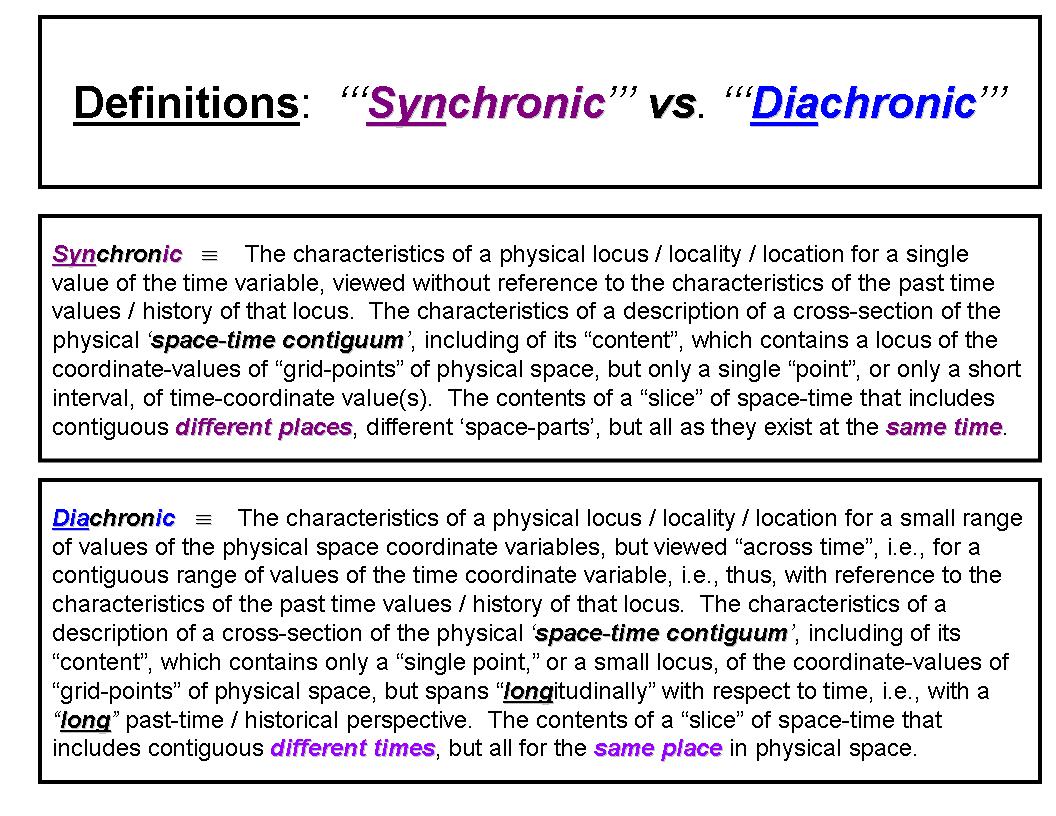
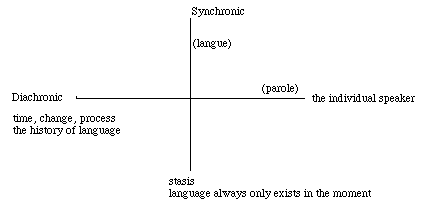
We may understand synchronic time as referring to a single instance of occurrence; that a sentence is spoken between two people may never be replicated in perfection again because that moment has passed. It may be repeated verbatim, but that first utterance has disappeared with the moment, which cannot be returned to as a result of the passage of time.
We may understand diachronic time as a written sentence that may be returned to, analyzed, re-shaped, re-analyzed and manipulated in more than one instance. It is static within time; that piece of paper the sentence was written on will always remain the same; the shape and length of the letters will remain the same and the order of the words will remain the same – upon that sheet of paper. Therein lies the difference between “spoken language” and “written language” – that the latter may be altered and manipulated while the former remains unchangeable. And now we shall move on to the advantages written language has over spoken language with regards to self-exploration.
Manipulation and Analysis of Memory
Imagine that you are writing in your diary. You could be writing poetry, a stream of consciousness venting about the day, or you could even be speculating about what the future might bring. Once this is written – you (or anybody else that finds your secret diary hiding spot, the horror!) may return to this entry and remind yourself what had occurred to your thoughts at the time of the writing. Something significant may have been written down that, in the pouring out of energy, was forgotten until read later. This forgotten bit of thought has become re-inserted into your consciousness for consideration and you may further develop the thought, whether to continue in the same direction or to find fault with the thought and re-dress the direction it had been taking you.
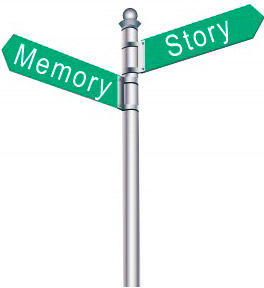 And now imagine that same diary entry was never written down, but was instead spoken to a friend. After the conversation is finished, you may still return to your memory of what was spoken – but that’s just it! It is now just a memory with nothing tangible to grab or to read! Your recollection of the general themes may be completely accurate – but what of the specific details? The metamorphic qualities of our memories will have perverted what was actually spoken and we may have even forgotten one of the most significant points touched upon during the conversation. Even if you speak to the other person that had listened once more, they may recall different points raised and remember them differently than you do. While analysis and growth are still possible with the spoken conversation – specific details are lost, which would otherwise have been retained through a written source.
And now imagine that same diary entry was never written down, but was instead spoken to a friend. After the conversation is finished, you may still return to your memory of what was spoken – but that’s just it! It is now just a memory with nothing tangible to grab or to read! Your recollection of the general themes may be completely accurate – but what of the specific details? The metamorphic qualities of our memories will have perverted what was actually spoken and we may have even forgotten one of the most significant points touched upon during the conversation. Even if you speak to the other person that had listened once more, they may recall different points raised and remember them differently than you do. While analysis and growth are still possible with the spoken conversation – specific details are lost, which would otherwise have been retained through a written source.
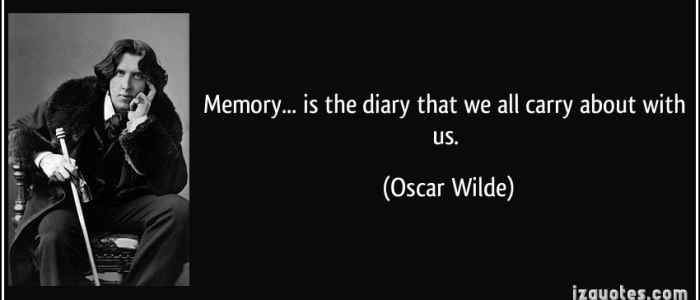
None of this is to say that there is no benefit to speaking with people. On the contrary, it is often times more beneficial than the act of writing and indeed can inform writing when it occurs. I am simply displaying the advantages that writing has where speaking fails.
Different Forms of Writing
Now, writing comes in different forms as well – from the stream of consciousness diary entries already touched upon to poetry of a specific structure to literary novels. We may run the gamut through writing before coming to an understanding of what we were trying to accomplish through our writing in the first place. And each medium provides different possibilities of understanding than others.
Poetry is often far more abstract in its associations and imagery – there is a more equivocal, or deliberately ambiguous, range of possibilities that can illuminate (albeit after analysis) what our psychologies are doing. It is an abstraction of the what we experience, a way for us to bring separation to our neuroses or psychoses.

A literary novel will deal with the same concept than a poem in a different manner. Let us suppose this concept is disenchantment, simply for example’s sake. Emily Dickinson wrote a poem titled “Disenchantment”, which was short and much to be said – but also much to be inferred. For the novel, the extended metaphor becomes necessary. Think of Holden Caulfield in The Catcher in the Rye. This is a novel that has disenchantment as a central theme, and yet spans across two hundred pages. Structurally these are polar oppositions and yet they deal with the same concept.
We can see here that it now becomes the decision of the writer as to how they will explore their internal faculties. Will it be a quick, concise, yet obscure poem or a lengthy, metaphorical novel (or even an epic poem as with The Divine Comedy or The Aeneid)? The writer must also consider scientific and academic writing, as well as any other form of writing in existence. Above all, the most important question to ask before beginning to write is: “What am I attempting to accomplish through my writing?”
A Few Last Words
To close out, I will return to the very first sentence of this article and the claim that much of this article is based on experience. I have found, quite often, that I sit down to write and nothing appears on the paper and I imagine that it has been the same for you – whoever you are – reading this. Is it for a lack of ideas or a lack of something to say? No! It is simply for a lack of awareness for the form of expression that is most appropriate to your state of mind at that moment. I often write my best work after the sun has gone down and I am the only person awake in my home. I often learn more talking with a complete stranger at a bar when the chaotic cacophony (awesome alliteration – eh?) would very easily render coherent thought impossible. To reiterate a previous statement – this article was simply to present the advantages that writing has to speaking. I would love for an article to be written about the advantages that speaking has over writing – an article to engage and continue this discourse of one versus the other as well as the synergistic relationship between the two. I’ll end this by quoting The Digable Planets song “Rebirth of Slick (Cool like Dat)”: “Think think think, think think think”.
Works Cited
Saussure, Ferdinand De. Course in General Linguistics. New York: Philosophical Library, 1959. Print.
Web. 6 Oct. 2015. 24AUG2011, Definition, SYNCHRONIC vs. DIACHRONIC, JPEG, for 26AU>.
Web. 6 Oct. 2015. <http://www.ap.krakow.pl/nkja/literature/theory/images/signs22.gif>.
“Alan Rinzler.” Alan Rinzler. N.p., n.d. Web. 13 Oct. 2015. <http://alanrinzler.com/2013/03/writing-a-memoir-intersecting-memory-and-story/>.
“Oscar Wilde.” Iz Quotes. N.p., n.d. Web. 13 Oct. 2015.
“Somatic Mind.” : Photo. N.p., n.d. Web. 13 Oct. 2015.
What do you think? Leave a comment.



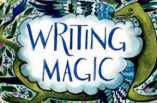


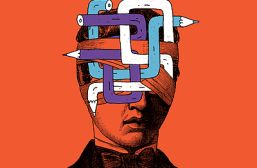




There is something to say about the slowness of written communication and how it allows us to enact some of the writing mechanisms as well as be more creative and reflective.
Agreed. This is especially true of reflective writing which slows my thinking down enough that I can see and discover the steps. Talking or thinking rather than writing allows me to miss steps, jump ahead or race to some bottom line.
There’s no doubt a writing has more intimacy, but I fear a lot of people have unlearned how to write.
I agree with the idea that writing has intimacy. I just think the way in which the majority writes is not the same. Interestingly enough I see writing blending more closely with the way we speak– which has drastically changed and has become less “artistic” or “beautiful”.
Writing being “unlearned” is happening because of technology. Social media is overtaking the old process of sitting down and aspiring for inspiration.
Recently bought a rather expensive fountain pen and returned to simply writing. Not sure if this is middle age setting in or a rebellion against the frenetic mentality of email and so forth. However, it simply feels right.
I remember the horror of being pressured to write more clearly, teachers leaning over me, telling me I had to keep doing it until I got it right, hand cramping at trying to hold the pen and meet their impossible standards. Even in 6th form I was getting backhanded compliments like ‘there’s absolutely no doubt he’ll pass A-level, provided they can read what he’s written’.
It was only years later that we realised my inability to write clearly and without pain was one of the first symptoms of my disability, I simply don’t possess, at a genetic level, the degree of proprioception necessary even to hold a pen securely, never mind write clearly. Nor am I remotely alone in that, whether the cause be dyspraxia, EDS, HMS, CP or any of a bunch of other disabilities with neurological or muscular impacts.
A letter is like getting a hug from someone, rather than an email, in that there’s always something slightly personal about it.
My boyfriend bought me a calligraphy set and now I exclusively write in cursive– in classes, my journal, and just for fun. It is so incredibly refreshing and I wish it was more popular in modern society.
Hurrah, there is hope!
I feel you. I find that the thoughts flow much more naturally when I hold the pen in my hand. Typing is so impersonal- trying to push my heart onto a machine that wants nothing to do with me. When I write with a pen I feel the energy between myself and the paper…there is no better feeling.
At times I’ve thought about making an audio recording of all my conversations so that I could later transcribe them into poetry, essays, or even short stories. Though, I worry how being conscious of the recording devise might influence my dialogue with others. Is that what podcasts are for?
While I agree with your assessment that writing creates a memory that can be returned to again and again, I feel that the spoken word is often the catalyst for the writing to happen. A conversation, however brief it may be, captures an emotion that often sparks the need to write. Poetry and novels are a continuation of that emotion, put into writing.
My writing has gone downhill since computers started being the dominant method of workplace activity.
Are you like 80 years old or older?
Thanks – a very good article.
Writing feels like an act of creation, rather than just a from of communication.
Nice read. I have taken to writing fiction in longhand to escape distraction, lend focus and to help discipline my trains of thought.
Good article, it certainly got me thinking.
My best writing is before the sun comes up and the day has not weighed in on me yet. In regards to speaking vs. writing, spontaneous verbal dialect created in the space of the moment can be cutting yet, truthful. When writing we can take time and examine our words and craft them so they send the same message; however, deliver it in a more pleasant manner in which it would be better received.
Very nice post. I found it interesting indeed to see this interest for writing.
Great piece. I think it has a very valid point.
I have a feeling that in years to come, it will be those of us who value the art of writing – even if/as we also use email, facebook etc – and maintain those skills, who will have the last laugh.
Thanks for making me think about this topic.
Very interesting exploration here!
I teach college composition as well as professional and technical writing, so the importance of print language is something I discuss quite often with my students. I think the connections you explore with the synchronic and diachronic certainly relate to the temporal structure of language – especially computer mediated communication in the 21st century!
As a reader, I definitely wanted you to unpack more of your ideas regarding the semantic and the memory involved. I think some connections to Artistotle, Plato, and perhaps even some other rhetoricians would help round this out. I just might take you up on your call for further exploration with the impact of spoken language – it certainly seems (based on some the responses you received) that spoken and written communication must not be completely divorced in order to weigh the importance each has in helping us to reflect, form thoughts, and then communicate those.
Thank you for the engaging read!
I really enjoyed this article.
“It is simply for a lack of awareness for the form of expression that is most appropriate to your state of mind at that moment.” I especially agree with this quote– there’s definitely a time and place and true writing isn’t something that can come to you at any moment.
I am especially interested in the idea of the relationship between writing and speaking, and how the two affect each other.
Writing is not just about semantics but also about grammar, lexicon, style and then, of course, the genre or field for the writing.
When I write, I feel as though I articulate my thoughts and emotions better. When I am upset and I try to convey it through speech, I tend to choke up and can’t calm down. At least when you type it out, you have time to really think about your words and how it’ll be conveyed to the other person.
I think it is more the “charm of writing” than the “art” of it.
Writing has a unique power that no form of electronic means of communication can rival.
It’s not so much about communication these days as much as it’s a GIFT.
I agree that writing is more powerful and memorable than audible words. Oftentimes, while I am working on an art project I will play an audiobook, and while I love books, I can never seem to remember what it is I listened to. My eyes have to absorb the words from the page in order for the story to be fully processed.
However, and this may be going off in a completely different direction, when learning a language listening to audio and speaking the words can be much more powerful than reading them. With speaking and listening you learn to pronounce and enunciate words whereas, when you’re reading words in another language you just have the letters on the page to guess how they should sound.
Interesting. I have moved from literature to speaking [e.g., English and Comparative Lit to Communication/Public Speaking]. I find your presentation [gee, do I sound like a Public Speaking teacher?] tres amusant! [now I’m trying to be a French-woman, eh?]. I deal with the reverse which is trying to get people to organize and present their ideas so that their audience understands and remembers. Perhaps a shared idea [of sorts!] ciao, ciao.
This is a great article, and definitely a thesis I agree with!
Although I have had my moments of illumination by dicussing things with someone, it’s only through the powerful act of writing and making something truly physical on one’s own do I truly discover the hidden gems.
Thanks for a great read!
It’s just a great feeling to be able to dig deeper and deeper into a thought or topic/issue almost in a limitless way. Something which can be restricted by the circumstances of a conversation or the exterior world.
This is the most technical piece I’ve read on writing. I write my best before the sun is up. At times I feel like I’ll never graduate from the Kindergarten of writing.
Writing makes things harder to misunderstand. But speaking more easily conveys feelings and power.
Interesting take on this. I kept thinking of my experiences working in a writing center and that many times it’s actually easier to sit back from the writing and just talk about their ideas. This usually helps writers articulate what they’re thinking. But then you mentioned the memory aspect. No matter how much it helps to talk ideas out, one of us has to quickly write down what was said to actually be able to use it later. I agree with a previous commenter that the written form is slower, but at the same time, spoken language can often be very roundabout as people work through ideas aloud. It just depends how you look at it, I guess. Nice article.
I feel that writing, as apposed to talking, is harder to convey emotions. When talking facial expression, tone of voice, and posture all dictate the emotions you emit when talking to somebody. When just writing it is harder to dictate the person’s feelings of the topic or conversation.
I agree that this can be true, yes. But I feel like this is largely only the case for less skilled (or less wordy) writers. Personally, I find writing to be easiest activity for me to express my emotions in. I’m a much more eloquent writer than a speaker currently, and I find that the more expansive role of time in writing allows me to more carefully choose my words to express my emotions. Tone and posture and the presence of a face aren’t all that necessary when you’re better able to work the creative juxtaposition of your words.
Very interesting article! Things that I have not thought of before. Another great advantage, I find, is that writing gives you more time to think about how you actually feel. When speaking with someone in person, long pauses are desperately avoided, so thoughts come out quickly and unfinished. When writing by yourself, you can give yourself as much time as needed to think all of your thoughts through.
Happy to see the references to Saussure and his structuralist approach to language. It’s vitally important that people realize the weight of the written word, especially in relation to the spoken word – I think the reason it is so important to realize this is because it makes one aware that there is more than one way to get across one’s ideas. If we pursue other ways to communicate, such a writing to one another, we can find deeper ways of universal connectivity between all, the only true way to resist against the massive scale of hatred in ths world. I am of the belief that everyone is able to communicate profound thoughts with others, in myriad ways, dependent upon the individual – everything being relative as it is; if we find the ways in which we can do so with the most success, then more and more connections can be made between people, accentuating the emphasis on a modern world that is actually open-minded – based on a comprehensive understanding of the differences and similarities between us all.
Interesting article. I have drawn a blank of late in writing, my only saving grace is that I am still in the habit of handwriting letters to old friends. Is it easier to express with the pen what one cannot with the voice? Yet, what voice is in our mind when we write. Is that voice the same if we type? The older I get, the less I have to say. The act of writing will keep memory alive!
Let me just say that I appreciate your habit of handwriting letters. It’s a sad thing I think for us to lose, and there’s a certain atmosphere about it that can’t be replaced. It’s a very intimate tradition, and one that has obviously existed for hundreds of years. So I’m glad to here someone is keeping it up still. I would myself, but I think most of my friends would give me weird looks at the suggestion.
I think for me the most important aspect of writing is the freedom to say whatever I should want to say. The majority of people you talk to today (myself included) will use some sort of “filter” in their interactions with you. That is to say, there are certain things they will and will not talk about and do. I wouldn’t say that the majority of society is superficial, but I would say that the average American citizen isn’t willing to go much further than skin-deep with you in their initial discussions. You have to know someone pretty well before you get a good sense of who they are, and before you can even begin to breach such personal topics as philosophy and religion.
What I love about writing is that it, for the most part, puts these concerns aside and simply portrays the writer’s voice and its concerns as they are. For me, writing feels so much more intimate than speaking (most of the time and with most people, that is). And the time to think before speaking allows the writer to do away with miscommunication and to present their ideas more along the lines of what’s in their head.
When I write, I weigh and consider each word. When I talk, however, I tend to lean more towards a stream of consciousness. I don’t always consider the words I am using, and I find it leads to miscommunications. Of course speaking has benefits, but writing, especially during an emotion time, can provide a clarity and thoughtfulness that cannot be beat. Nice article.
Interesting look at the actual semantics of writing. Too often we get lost in the fluff of it.
I like this article very much. I agree that writing has some major advantages over speaking. Also, when writing you can plan out what you are going to say, while in speaking sometimes you mouth goes faster then your brain!
I have a horrible time with person to person casual conversation. I am awkward, make a lot of book and movie references, and have almost no filter. Writing is my way of communication. I can decide what I want to say and think about it, digest it, revise it if necessary. I love people, really I do, but mostly for research purposes. Until I really get to know you and then you fall in love with my adorkable qualities.
Really great tips. As these tips helps students in writing a good essay/assignment or thesis. Thanks!
Very hepful
As good as it is to have a listening ear and (perhaps) receive helpful advice, I personally find more clarity in my thoughts after penning them down. The permanent nature of the written word is also helpful in both retrospection and introspection. Even if it doesn’t grant any revelations, the catharsis of writing it out is still irreplaceable, because there usually aren’t filters in your own writing, as opposed to speaking to someone else.
With my writer’s brain, I find that I cannot fully cohesively collect my thoughts without writing them. Often a serious discussion, will be preceded by my sneaky departure to pen my thoughts before vocalising. I have, at times, wished I was more off-the-cuff yet I recognise my need for the kinaesthetic support of paper and pen.
I’m glad I’m not the only one that finds they write best at night. There’s something about being the only one awake that opens the world for exploration. While everyone else dreams, you write… Or try to. I like the author’s note about needing to find the best way of articulating oneself. I struggle so hard sometimes to write down what I can say so well. If I could communicate through speech all the time, I would, but there’s something about capturing those ideas in a more fleshed out form that makes writing worth it.